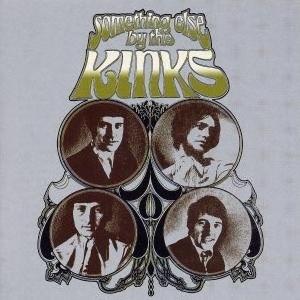Zack: Behind The Clash by the Clash, Horses by Patti
Smith, Never Mind the Bollocks… by the Sex Pistols, and New Boots and Panties!!
By Ian Dury, this was the most eagerly awaited punk album by me. That might not
sound too impressive, until you realize that I am excited to listen to every
punk album on the list (now that we’ve gotten the Green Day out of the way at
least). The biggest difference is that most people I talked to about this album
before listening to it responded with either who or what, while these same
people would probably be familiar in at least a cursory sense with those other
four. But while Germs may be a bit more unknown that some of the other bands of
this list, there is one factor that sets them apart: Pat “Mothafuckin’ Smear.
We’ve actually encountered Mr. Mothafuckin Smear before (he was the touring
guitarist used on Nirvana’s Unplugged) and both Emily and I have been lucky
enough to see him live (with the Foo Fighters). Germs is how Pat Smear got his
start, leading up to his work with those other two more culturally significant
bands. I was curious to see what his guitar work sounded like back then. The
answer, apparently, is fast as fuck. Germs play like a true hardcore punk band,
meaning so rapidly that you don’t have time to really think about whether it’s
really good or not. Under such strict pressure, I was forced to say that it was
good, and I’m sticking to my guns on this one. This album made me want to punch
the woman sitting across from me on the train. She’s a lovely woman (even
watched my bags when I ran to the bathroom). But damnit! This is punk rock, and
it’d just be phony if I didn’t punch someone. Punk is pretty easily divisible
by decade, mostly because punk bands tend to last for such short periods. Of
each decade, the battle for my favorite 80s punk band is probably the most wide
open. That said, with (GI), Germs have certainly entered the race, if not taken
a bit of a lead.
Favorite Tracks: Communist Eyes; Shut Down (Annihilation
Man); Manimal
Emily: The reason I wanted to listen to Germs came down
to one guy: Pat Smear, my unofficial favorite member of the Foo Fighters. He’s
the same age as my parents, except he awkwardly plays rhythm guitar standing
next to Dave Grohl – pretty sure my dad hasn’t done that. This album, however,
features Smear in his way younger days (1979, to be exact), though I’m sure he
was still awkwardly playing the guitar on the side of the stage. (GI) was the
only album released by Germs, who were best known for their lead singer’s
erratic, drunken, non-singing behavior at their shows. They were crazy, got
banned from clubs, and made some pretty kickass punk music. Each under-2-minute
nugget of a song is loud, fast, and makes you want to pogo/mosh/thrash/whatever
punk dance they did in 1979 alongside a 20-year-old Pat Smear.
Favorite Tracks: Media
Blitz; We Must Bleed; Manimal





